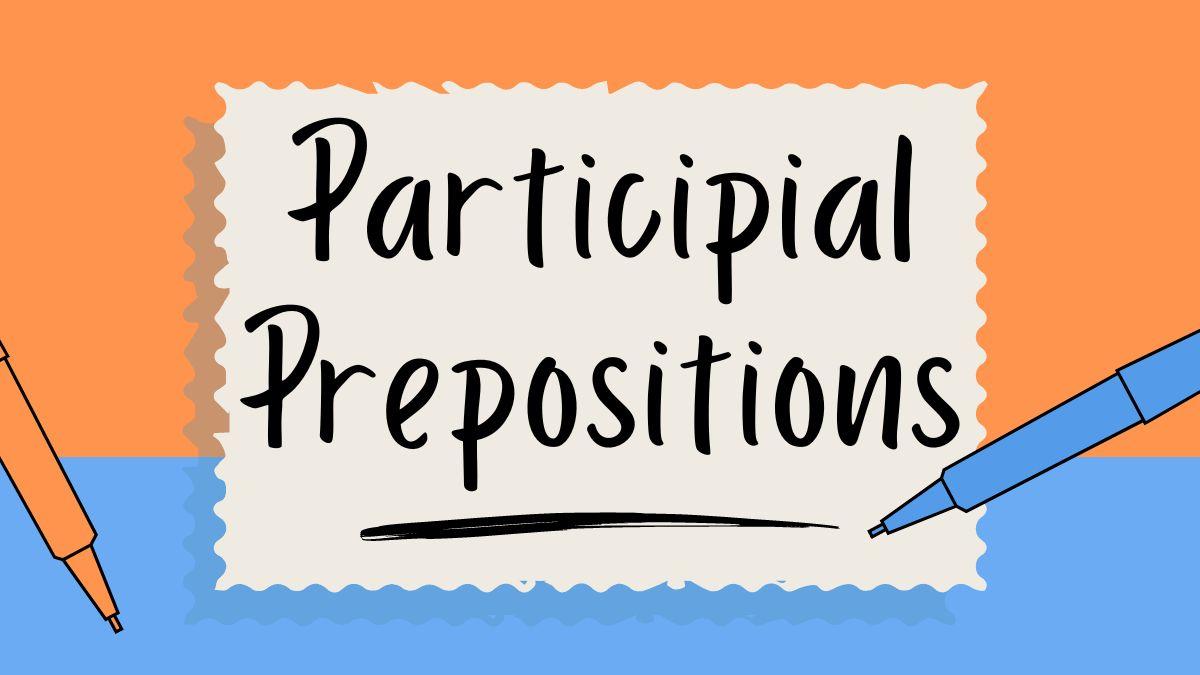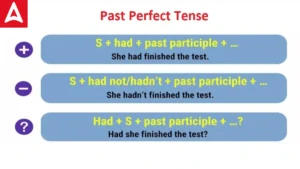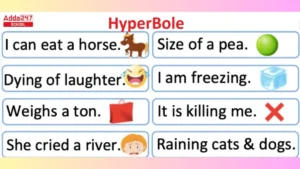The prepositions are one of the main component of the parts of a speech. The prepositions are used to show relationship between a noun and pronoun with other parts of a sentence. One major type of the preposition is participial proposition. In this article, we will know about the Participial Prepositions in detail by knowing its definition. We will also look at some of the common examples of this preposition and solve questions based on it.
Participial Prepositions
In the English language, partitive prepositions are employed as prepositions rather than verbs. Its function is to alter a sentence’s primary clause. Some of the most commonly used participial prepositions are: provided, concerning, given, barring, assuming, during, and so on.
This is only one of the many prepositional forms that you need to be aware of if you use English grammar frequently. Participial preposition is also commonly known as participle preposition.
Participial Prepositions Definition
Participle prepositions are prepositions formed by using a verb’s participle form to act as a preposition. They are employed to portray a particular activity or condition of something within a sentence. these prepositions are formed when certain verbs ending with ‘-ing’, ‘-en’ or ‘-ed’ act as a preposition in the sentence.
As previously mentioned, this type involves the use of a verb’s participle form to act as a preposition. They are utilized to depict a particular activity or condition within a sentence. Participle prepositions modify nouns or noun phrases in sentences. They are utilized to offer extra details regarding the status or characteristics of a noun. In simple terms, they work in the same way as adjectives.
Some Commonly Used Participle Prepositions
The participle prepositions are used to modify the sentence’s main clause, which could be a verb or a noun. Participle prepositions generally function to express relationships in manner, time, or condition. Some commonly used examples of participle prepositions include regarding, given, including, exhausted, considering, etc. Here is a compilation of frequently used participle prepositions that are used in sentences.
- Excluding
- Following
- Notwithstanding
- Given
- Saving
- Excepting
- During
- Considering
- Regarding
- Including
Examples of Participial Prepositions
below we have mentioned the examples of participle preposition with sentence examples.
Regarding
- The memo addressed several concerns regarding the company’s new dress code policy.
- There have been many inquiries regarding the safety measures at the construction site.
- The manager sent an email regarding the upcoming training session.
- Regarding your question about the meeting time, it has been rescheduled to 3:00 PM.
- Regarding your application, we will inform you of our decision within the next week.
Considering
- Considering the weather, the team decided to postpone the event.
- The team made significant progress, considering the limited resources available to them.
- Considering her busy schedule, she still found time to volunteer at the shelter.
- Considering the high cost of living in the city, they opted to move to the suburbs.
- Considering his lack of experience, he performed remarkably well in the audition.
Including
- The seminar covered various topics, including psychology, sociology, and anthropology.
- Our team won several awards at the competition, including Best Overall Performance and Most Creative Presentation.
- The picnic basket was filled with goodies, including sandwiches, fruits, and cheese.
- The museum boasts an impressive collection of artefacts, including ancient pottery, sculptures, and textiles.
- The package deal for the vacation includes accommodations, meals, and guided tours of the city’s landmarks.
Exhausted
- He appeared exhausted from staying up all night studying for the exam.
- Exhausted from running errands all day, she welcomed the chance to sit down.
- Exhausted from the long hike, they decided to take a rest by the river.
- Exhausted from arguing with his parents, he retreated to his room.
- Exhausted from trying to meet unrealistic deadlines, the employees felt burnt out.
- Exhausted from the rigorous training, she collapsed onto the ground.
- Exhausted from the heat, they sought refuge in the shade.
- The team was exhausted from playing back-to-back games without a break.
- Exhausted from the emotional rollercoaster, she needed time alone to recharge.
- Exhausted from dealing with the demanding clients, he longed for a vacation.
Assuming
- Assuming you’re ready, we can begin the meeting now.
- Assuming you’ve read the instructions, you should be able to assemble the furniture easily.
- He took on the challenge, assuming it would be difficult but rewarding.
- The team moved forward with the project, assuming they had enough resources to complete it.
- Assuming the data is accurate, our conclusions are valid.
- He entered the room, assuming everyone had already left.
- She accepted the invitation, assuming there would be vegetarian options available.
- Assuming the weather holds up, we can have our picnic in the park tomorrow.
- She agreed to the terms, assuming there wouldn’t be any last-minute changes.
- He made the purchase, assuming it was the right decision for his business.
Following
- Following her advice, I decided to pursue a career in medicine.
- Following his graduation, he plans to travel around the world.
- Following the meeting, we will have a networking session.
- Following the recent developments, we need to reconsider our strategy.
- Following the trail of breadcrumbs, they eventually found their way back.
- Following the accident, she was taken to the hospital for treatment.
- Following the instructions carefully, she assembled the furniture.
- Following the storm, many trees were uprooted.
- Following his retirement, he took up painting as a hobby.
- Following the rules is essential for maintaining order.
- Following the trend, many businesses shifted to online operations.
- Following the recipe, she prepared a delicious meal.
Provided
- Provided they arrive on time, we can start the meeting promptly.
- Provided he gets enough rest, he should recover from his illness soon.
- Provided he behaves himself, he can join us for dinner.
- Provided they meet the qualifications, they will be offered the job.
- Provided you follow the instructions, assembling the furniture should be easy.
- Provided we have enough ingredients, we can bake a cake for the party.
- Provided she finishes her homework, she can watch TV later.
- Provided it doesn’t rain, we’ll have a picnic in the park tomorrow.
- Provided with proper training, the team improved their performance.
- Provided with the necessary tools, she completed the task efficiently.
Concerning
- The discussion concerning the budget allocation lasted for hours. The article concerning climate change sparked a heated debate.
- There was a lot of speculation concerning the company’s future.
- The discussion concerning the budget allocation lasted for hours. The article concerning climate change sparked a heated debate.
- Concerning his whereabouts, we have received no updates.
- The report concerning employee satisfaction will be presented at the meeting.
- I have some questions concerning the new project timeline.
- The email concerning the upcoming meeting was sent yesterday.
- There were rumors concerning layoffs in the company. She wrote a letter concerning her concerns about the new policy.
- His speech was insightful concerning the current economic situation.
- The statement concerning the incident was issued by the authorities.
Practice Questions on Participial Prepositions
Q. 1) Revise the sentences utilizing an alternative participle preposition while maintaining the original meaning.
- Concerning the proposal, we need to gather more information.
- Given the circumstances, he decided to postpone the project.
- Including her qualifications, she seemed like the perfect candidate for the job.
- Except for the final chapter, she had finished reading the book.
- Following the instructions, they successfully assembled the furniture.
Answers:
- Regarding the proposal, we need to gather more information.
- Following the circumstances, he decided to postpone the project.
- Including her qualifications, she seemed like the perfect candidate for the job.
- Excepting the final chapter, she had finished reading the book.
- After the instructions, they successfully assembled the furniture.
| Related Articles | |
| Compound Prepositions | Simple Prepositions |
| Prepositional Phrases | Adverb |
| Conjunction | Adjective |











 Vocabulary Words with Meaning and Senten...
Vocabulary Words with Meaning and Senten...
 Past Perfect Tense: Definition, Formula,...
Past Perfect Tense: Definition, Formula,...
 Hyperbole- Explanation, Definition, Exam...
Hyperbole- Explanation, Definition, Exam...









